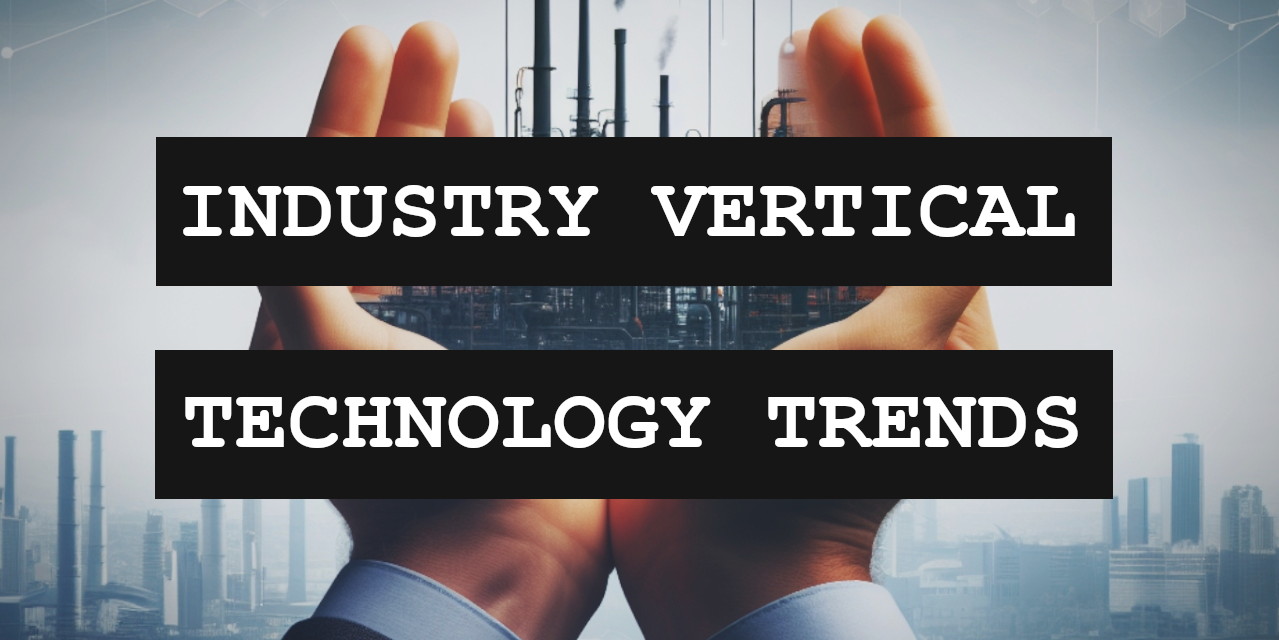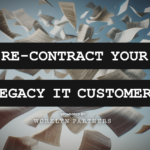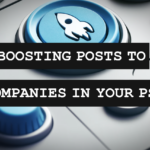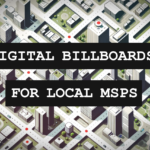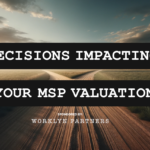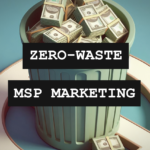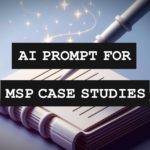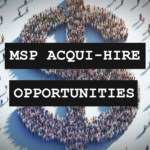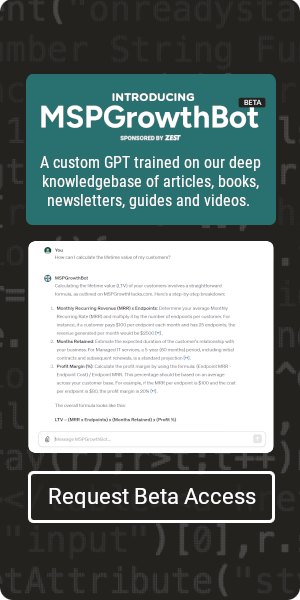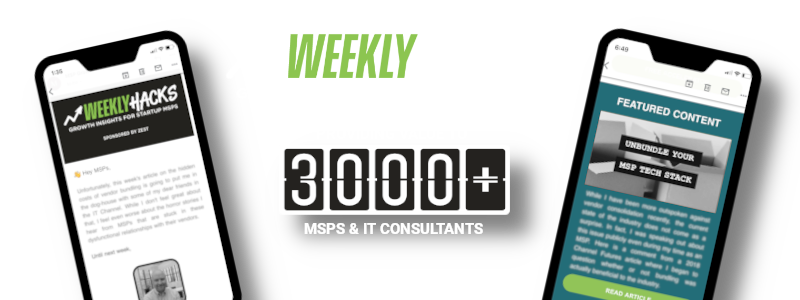From Opportunity To Necessity
What was once an opportunity for differentiation is now becoming somewhat of a necessity for MSPs. I am talking about vertical specialization and an MSP’s willingness and abilities to support the adoption of industry specific products, tools, and services. I believe that more SMBs are coming to the realization that these niche industry products are the ideal solution for their problems (whether their MSP agrees or not).
This is being influenced by their industry peers, events, and vendor landscape, similar to what we experience in the IT Channel. For example, take just one look at the sponsor lineup for a Legal Industry conference and you will see the vast majority are technology and SaaS providers that primarily sell into that industry. As an MSP, your customers are attending these conferences and having these conversations with or without you, so it is important to (at a minimum) have a pulse on who these vendors are and what they offer.
The Ultimate Guide To Cash Flow For Managed Services
Sponsored by Alternative Payments & Zest
Down The Rabbit-Hole
As these SMBs start to build out a vertically integrated tech stack, it leaves the MSP with no choice but to go down this rabbit hole with them. In order to properly support the customer and help to make high-level technology decisions, the MSP must fully understand these products and services, how they differ, and how to integrate them into the rest of the technology stack.
This specialized knowledge is both a gift and a curse for MSPs. On one hand, it is a great opportunity to go deep into an industry and become truly specialized (beyond just slapping it on your website). On the other hand, the growing requirement for specialized knowledge on an industry by industry basis makes it more difficult to support a general mix of clients in the way that most local MSPs are accustomed to.
The question is, who is leading who down said rabbit hole and is there a clear plan for adoption? I believe that it is up to the MSP to step-up in this regard and become as deeply integrated in the industry as possible. This way they can come to the table informed and ready to lead the conversation.
To help you do just that, here are a few trends that I have noticed that reinforce specialized products and services within an industry vertical:
Reinforcing Trends
Industry Segmentation
It is important to first point out that industries themselves are seeing more segmentation from within. For example, while you could once just bundle “healthcare” into just a few buckets, we are now seeing vastly different technology (and regulatory) requirements based on the type of care given. In many states in the US, Primary Care and Geriatric / Pediatric Care are all handled differently. There is also a large uptick in Urgent Care services that help to fill the void between Primary Care and Hospital emergency rooms.
The point is, given this segmentation, you could argue that there is a distinct opportunity in specializing, down to the specific care types in this industry. For example, the 10,781 active Urgent Care clinics in the United States have developed unique technology needs as it relates to telehealth, EHRs, queue management systems, digital imaging, rapid testing, etc. This newly formed sector could likely support several specialized MSPs with healthy competition. While this is just one example, other industries are seeing a similar trend as they become fractionalized into sub-industries with varying requirements.
Compliance & Cyber Liability
The most serious of these trends comes in the form of both regulatory compliance and cyber liability. These come hand in hand since these are in many cases not optional for the end customer. Regulatory standards are becoming more nuanced from industry to industry as it relates to technology, data, and privacy. At the same time, cyber liability providers are becoming more stringent and requiring proof of cybersecurity best practices, especially when the end client is in an industry that they deem has high-risk.
As Jesse Miller, a vCISO consultant for MSPs explains; “It’s not enough anymore to play the parlor trick of speaking in an industry’s vernacular in your client meetings. We’re seeing terms like ‘fourth party risk,’ start to emerge, meaning that technology decisions carry multiple layers of consequences. Without understanding these deep ramifications, MSPs are at risk of giving lip service to their clients, at best. At worst, the wrong decision could harm their clients’ long-term sustainability in these increasingly competitive markets.” The point is, you are now responsible for knowing and understanding the compliance standards for each of your clients, even as those standards become more specialized from industry to industry.
IoT Enabled Hardware
One trend that I believe will have significant implications for the specialization of MSPs is the adoption of IoT. The manufacturing industry acts as a prime example. This sector, traditionally viewed as slow to evolve, is undergoing significant digital transformation right now as they adopt networked technologies that offer real-time visibility and control over equipment, enhanced efficiency, and better decision-making capabilities.
The keyword here is “networked,” as almost all of these devices live behind the firewall and require a sound network infrastructure to function. As you can imagine, this is no easy feat, especially across large manufacturing facilities with concrete construction and minimal oversight. This is where MSPs can become invaluable, not only to the end customer, but also to the vendors that sell such products. Without a responsible party to direct traffic on the network, manage security, and ensure compatibility with other types of hardware and software, these deployments can be destined to fail.
The Ultimate Guide To Cash Flow For Managed Services
Sponsored by Alternative Payments & Zest
Niche SaaS Products
Over the past few years, software has become increasingly verticalized. By this I mean, we are seeing more products come to market that are pre-configured with specialized features to suit one or a few specific business models. This is akin to what we are seeing in the IT vendor landscape, as there is now a version of everything that is tailored just for MSPs. You can find examples of this in almost every product category (CRM, ERP, Project Management, Accounting, etc.) and industry (Legal, Accounting, Construction, Retail, etc.). Simply mix and match any combination of these categories and industries and you will find a hot new SaaS product being dangled in front of your customer (ie. Jobber, the CRM for Construction companies).
Since MSPs often wear the hat of “vendor manager,” they are in many cases being pulled into these relationships with such vertical software providers. Much like with IoT, these relationships can be very fruitful if you are on the right side of them. Being a good collaborator is very important and can be the difference between successful and unsuccessful deployments for your end customer. These software vendors know this, which is why they always have a short list of their preferred MSPs (which is frankly not a bad list to be on).
AI & No / Low Code
As MSPs become more hands-on with verticalized software solutions, it presents new opportunities to leverage AI and No / Low Code platforms to act as integrators. Since MSPs often own these relationships and touch every part of the technology stack, they are in a prime position to design and deploy custom middleware solutions that solve workflow challenges for their customers. While this type of work once required expensive development resources that MSPs rarely had access to in-house, these resources have become largely commoditized by AI and are now easily accessible. Once these workflow solutions are built, they offer secondary revenue opportunities for MSPs to redeploy them to other customers with similar business models and technology requirements.
When asked about how AI will further impact specialization of MSPs, Jimmy Hatzell of Hatz AI states; “We are at the infancy of a global transition to AI. SMBs need help and they will naturally turn to their MSPs. Fairly quickly, MSPs can monetize systems of AI engagement and introduce generative AI to their customers through software applications configured to meet their day to day use cases. In the long term I see MSPs supporting AI systems of record. This would include datasets and getting data “AI Ready” as well as training, maintaining, and supporting LLMs for organizations. I foresee a movement back to local infrastructure and private cloud, especially for AI adoption in regulated industries. MSPs are already equipped to assist with those needs.”
Conclusion
While the gravitational pull of these trends appears to be moving MSPs into the direction of specialization, I believe that this is good for everyone. While it will force MSPs to go a few notches deeper into the industries that they support, doing so will increase the value that they bring to the table. Every MSP hopes to eventually take on the role of “de-facto” IT decision maker on behalf of their customer. Jumping in the industry foxhole with them is a great place to start.

SPONSORED BY ZEST
